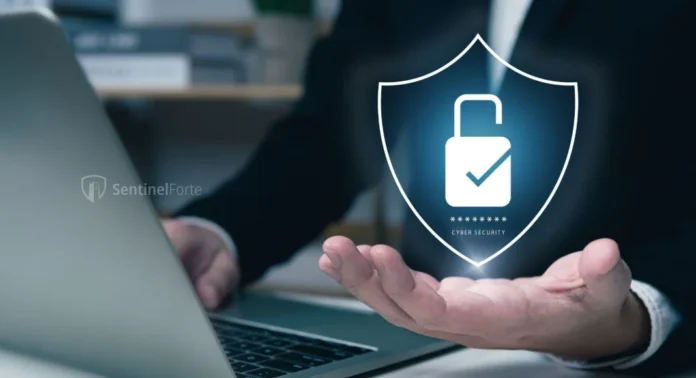In today’s digital era, understanding the fundamentals of cyber security and online safety has become crucial. As the internet integrates deeper into daily life, from financial transactions to social interactions, knowing how to protect your personal information is essential. This article explores practical and actionable cyber security tips to keep everyone—from tech-savvy professionals to digital newcomers—safe online.
Imagine waking up one morning to discover that your bank account has been drained overnight by a hacker operating halfway across the globe. Sounds far-fetched? Sadly, such scenarios are increasingly common. In fact, according to Norton’s 2024 Cyber Safety Insights Report, one in three adults worldwide experienced some form of cybercrime last year alone. This startling statistic serves as a clear warning: anyone can become a victim.
Just last month, a sophisticated ransomware attack crippled the systems of a major healthcare provider, causing widespread disruption. Thousands of patient records were compromised, highlighting the critical importance of online safety measures beyond individual levels. But don’t let these stories paralyze you with fear—rather, let them motivate you to strengthen your defenses. A proactive approach to cyber security can drastically reduce your risk of becoming another statistic.
Cyber Security Basics Everyone Must Know
At its core, cyber security involves protecting your digital identity, sensitive data, and devices from unauthorized access or malicious threats. Online safety begins with understanding the threats and being equipped with effective defensive strategies. Below are some foundational cyber security tips you can start implementing immediately.
Strong Passwords: Your First Line of Defense
Creating strong, unique passwords is the simplest yet most effective step toward robust online safety. Shockingly, data from Verizon’s 2024 Data Breach Investigations Report reveals that 81% of hacking-related breaches leveraged weak or stolen passwords. To fortify your digital accounts, always use passwords of at least 12 characters, blending uppercase and lowercase letters, numbers, and special characters. Avoid predictable patterns and common words. Utilizing reputable password managers, such as Bitwarden or 1Password, can greatly simplify this process while boosting security.
Two-Factor Authentication: Doubling Your Security
Even the strongest passwords aren’t foolproof. Enter two-factor authentication (2FA)—a second layer of security that requires you to verify your identity through an additional method, usually a code sent to your phone or email. According to Google, enabling 2FA can block up to 99.9% of automated attacks. Popular platforms like Facebook, Amazon, and Google offer simple ways to activate this feature. Embracing 2FA is no longer optional—it’s essential for comprehensive cyber security.
Staying Vigilant Against Phishing Attacks
Phishing remains a top online threat, deceiving users into revealing personal information through seemingly legitimate emails, texts, or websites. The FBI’s 2024 Internet Crime Report indicated phishing attacks accounted for over $2.7 billion in losses last year. Always scrutinize unsolicited communications, particularly those prompting immediate action or requesting personal data. If in doubt, verify the sender through official channels and never click on unfamiliar links.
Securing Your Network: Beyond Passwords
Your home Wi-Fi network is often the gateway for cybercriminals. Always change your router’s default username and password and regularly update firmware. Using encryption, specifically WPA3, can significantly enhance network security. Additionally, employing a reputable VPN service, such as NordVPN or ExpressVPN, not only secures your internet traffic but also masks your IP address, reducing vulnerability.
Protecting Personal Devices: Antivirus and More
Cyber security software remains indispensable for online safety. Antivirus tools, such as Norton Antivirus or Malwarebytes, scan your system continuously, detecting and removing threats proactively. According to AV-Test Institute data from March 2024, high-quality antivirus software can detect up to 99.7% of malware threats. Always keep software and applications up-to-date, as updates frequently address newly discovered security vulnerabilities.
Privacy Matters: Being Mindful on Social Media
Social media platforms offer rich targets for cybercriminals. Sharing sensitive personal information publicly makes identity theft simpler. Carefully manage privacy settings, limit personal details shared online, and think critically about the information you post. Remember, once shared, your digital footprint is nearly impossible to erase completely.
Online Shopping: Proceed with Caution
The convenience of online shopping shouldn’t overshadow cyber security practices. Always ensure websites use HTTPS—signified by the padlock icon—to encrypt data during transactions. Avoid public Wi-Fi when making purchases, and prefer using credit cards, which offer more robust fraud protections than debit cards. Monitoring transactions closely and regularly can also catch fraudulent activity early.
Regular Data Backups: Your Digital Safety Net
Frequent backups are critical, particularly against ransomware attacks, which surged by 22% in 2023 (Cybersecurity Ventures). Using cloud services like Google Drive or iCloud, alongside physical backups on external drives, ensures your data remains recoverable. Regular, encrypted backups act as insurance, significantly reducing damage in worst-case scenarios.
Education: Your Best Long-Term Strategy
Cyber security is a continually evolving field. Staying informed about emerging threats and regularly updating your knowledge remains essential. Follow reputable security blogs, attend workshops, or enroll in online courses. Organizations like Cybersecurity & Infrastructure Security Agency (CISA) regularly provide valuable resources for ongoing education.
Ultimately, online safety isn’t just about installing the latest antivirus software or creating complex passwords—it’s about developing a mindset of continual vigilance and adaptability. Cyber threats may constantly evolve, but by staying educated, proactive, and alert, you can significantly reduce your risk and enjoy a safer digital experience. In a world increasingly reliant on digital interaction, cyber security isn’t just optional—it’s a necessity that ensures peace of mind and safety for everyone navigating the online landscape.

